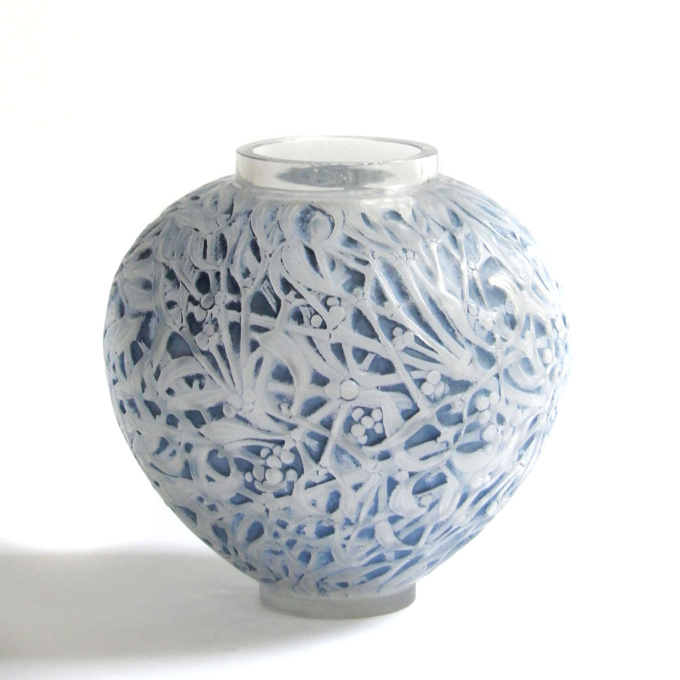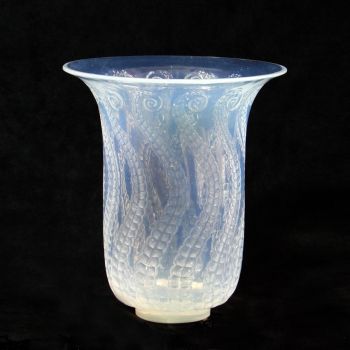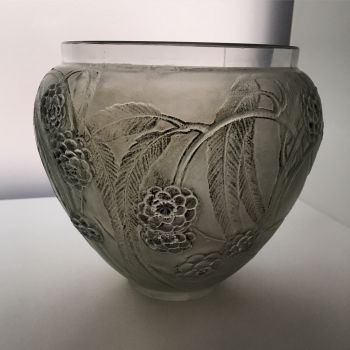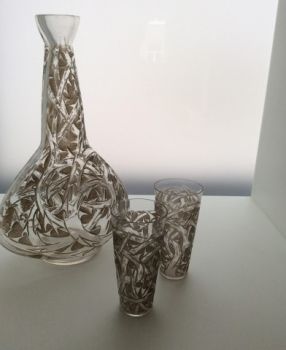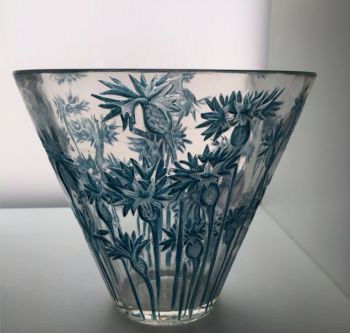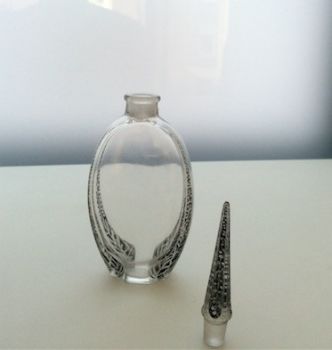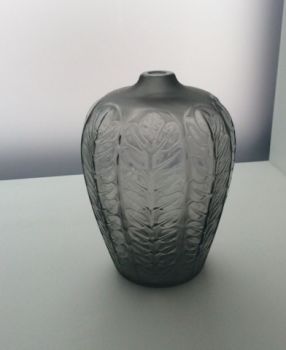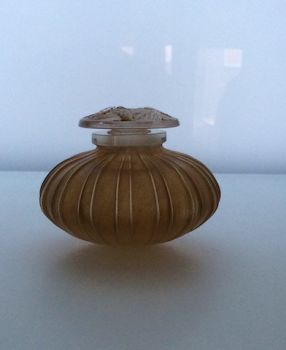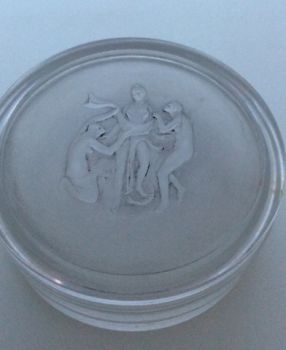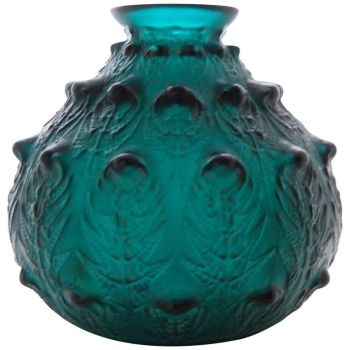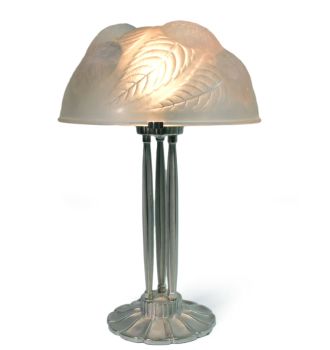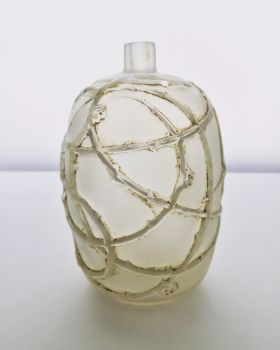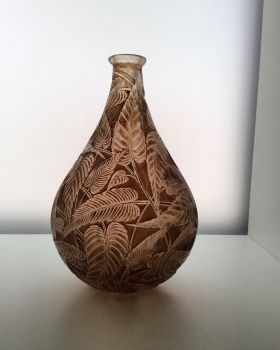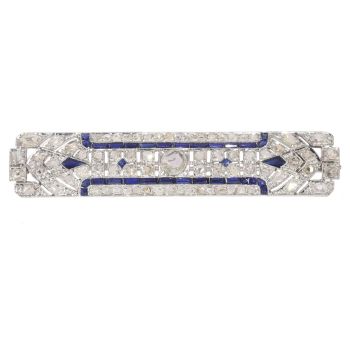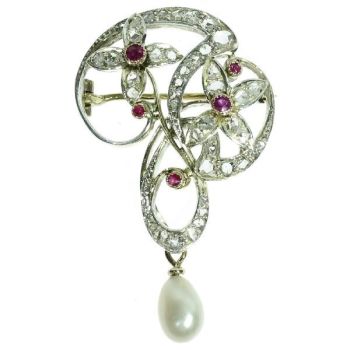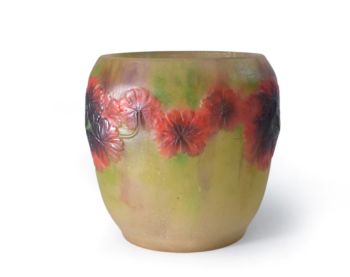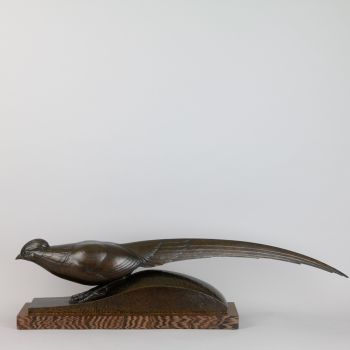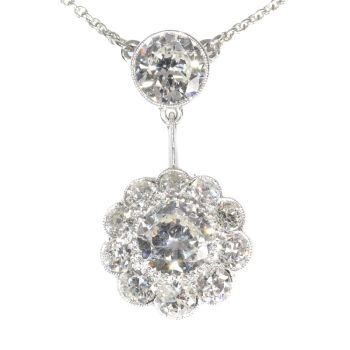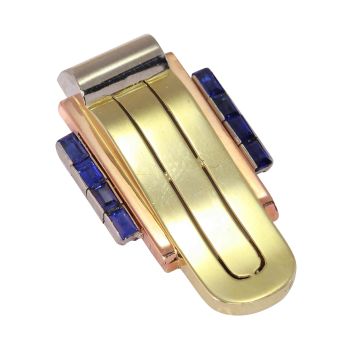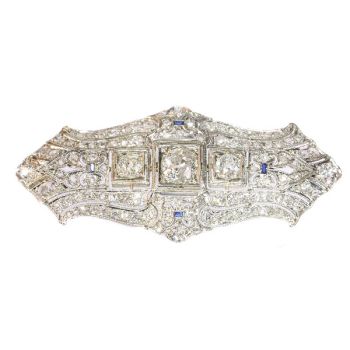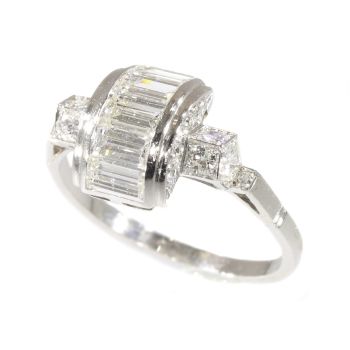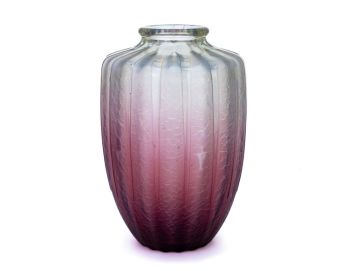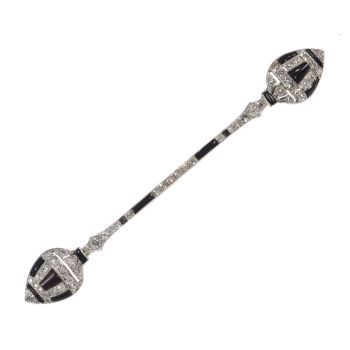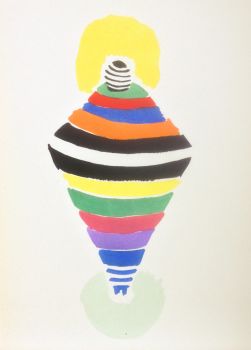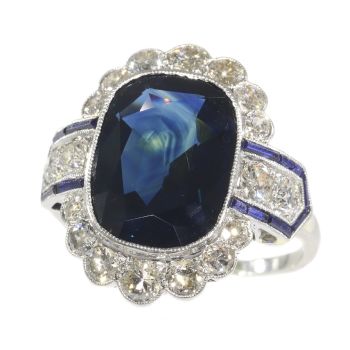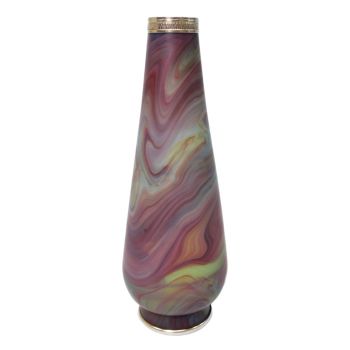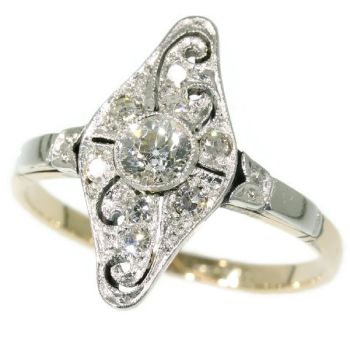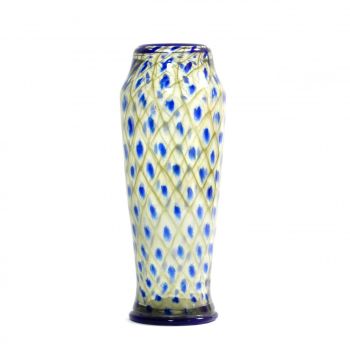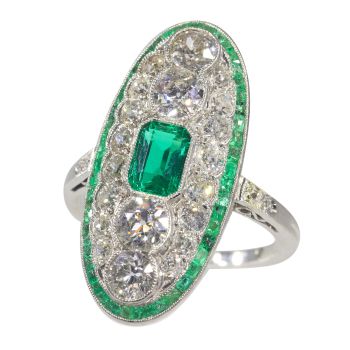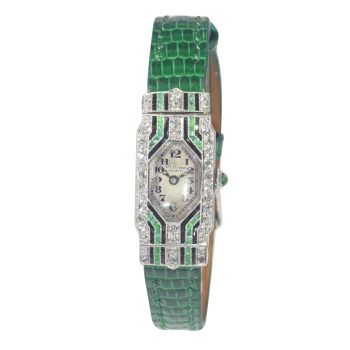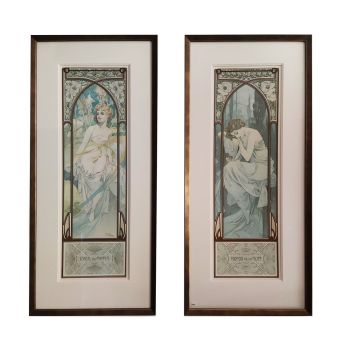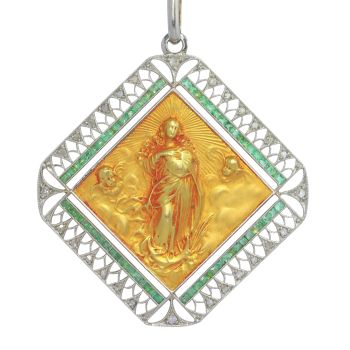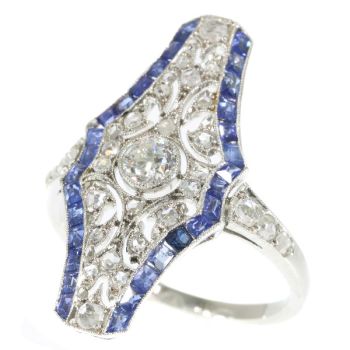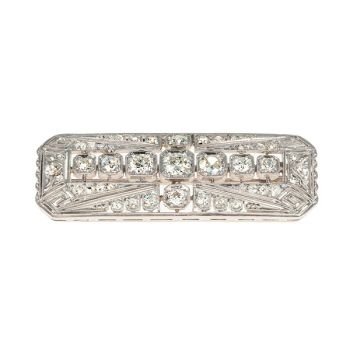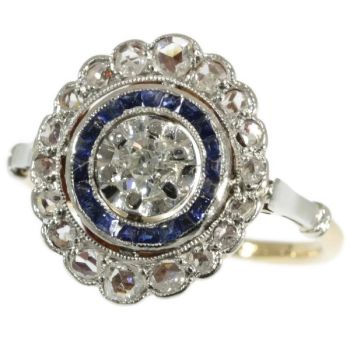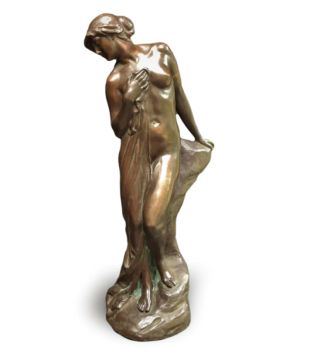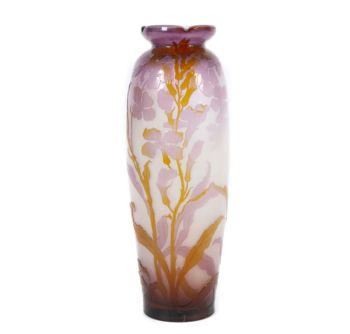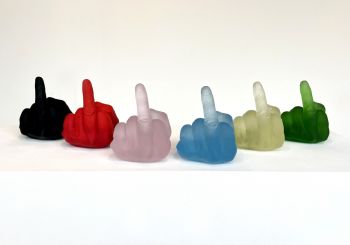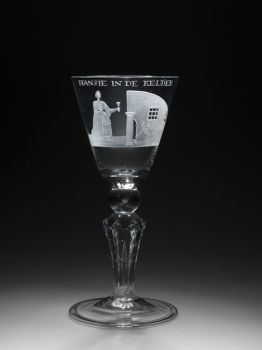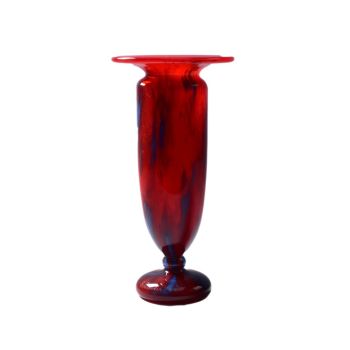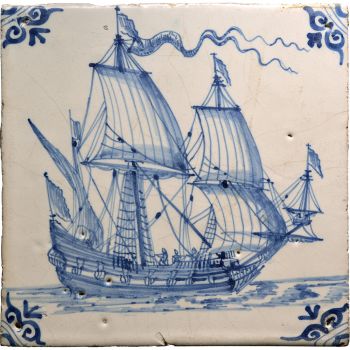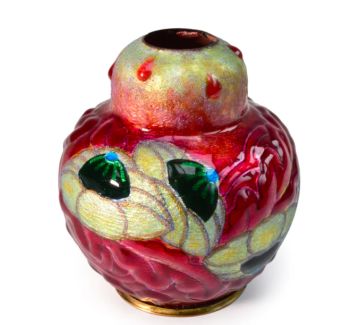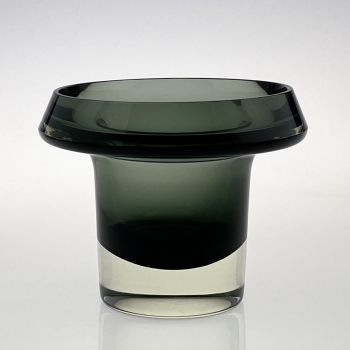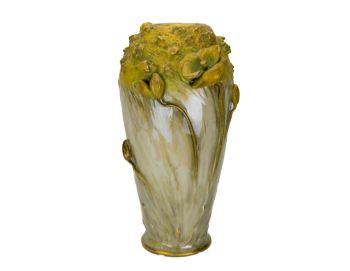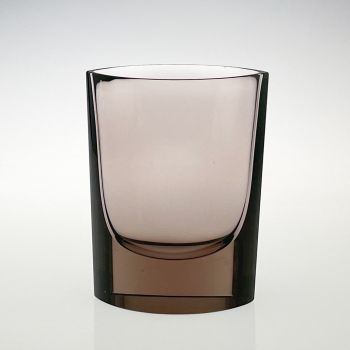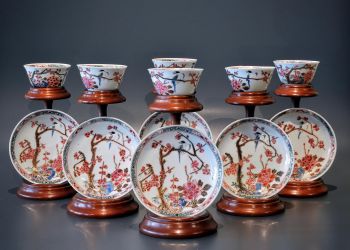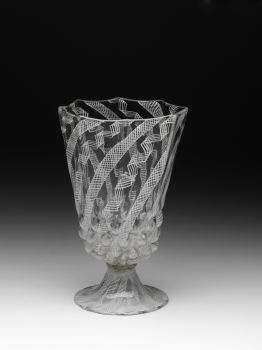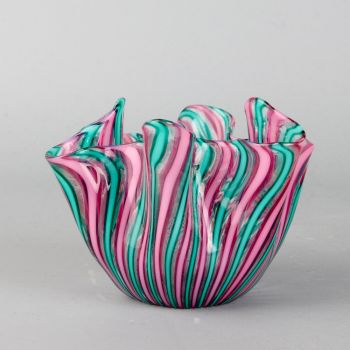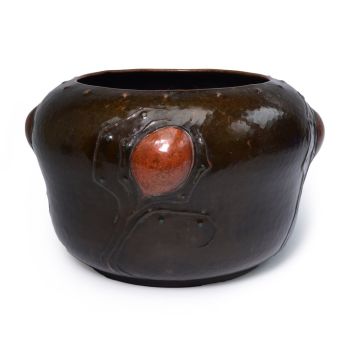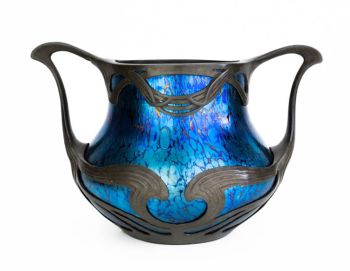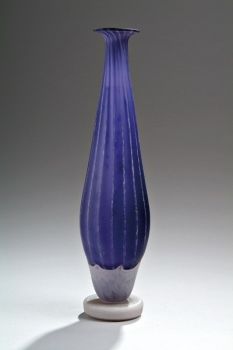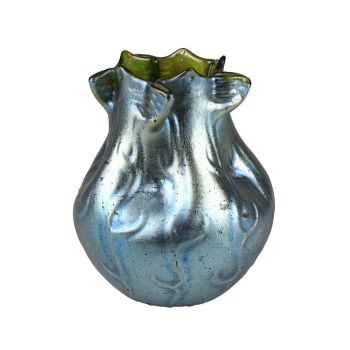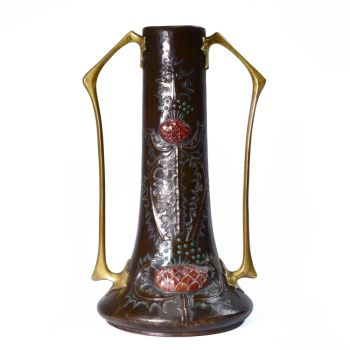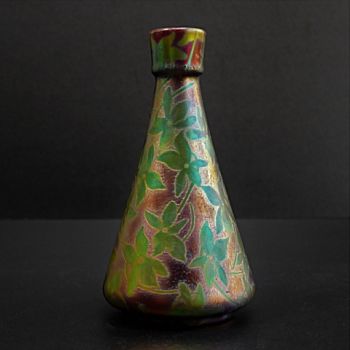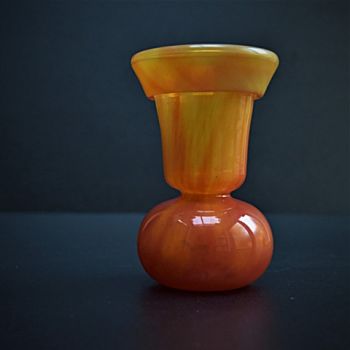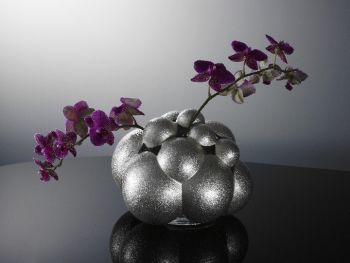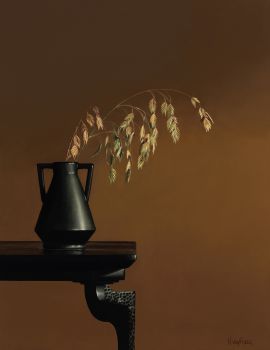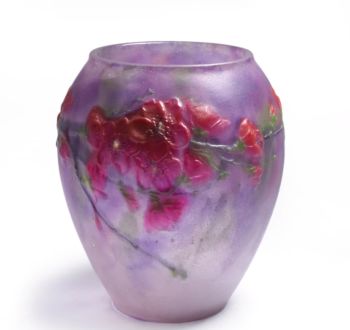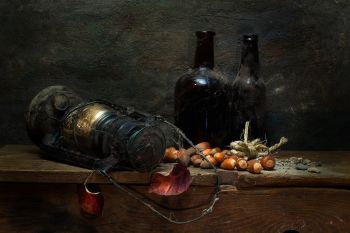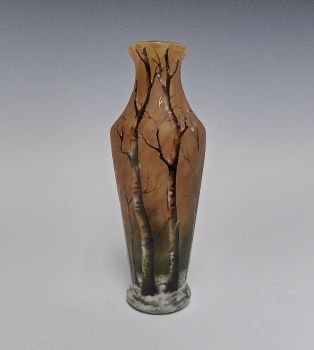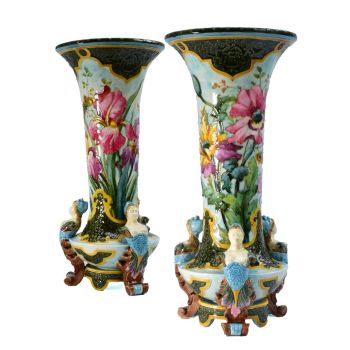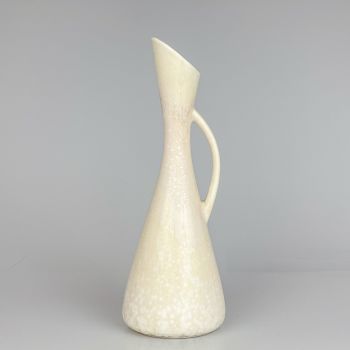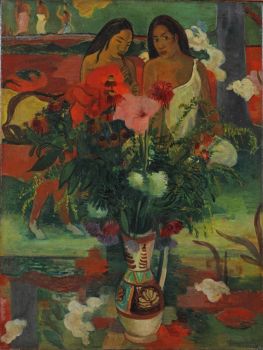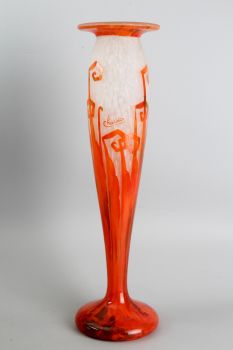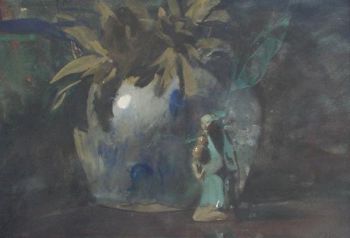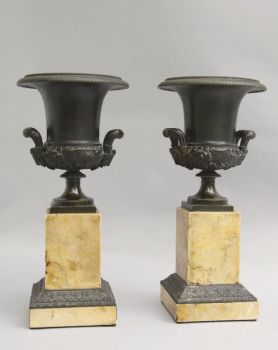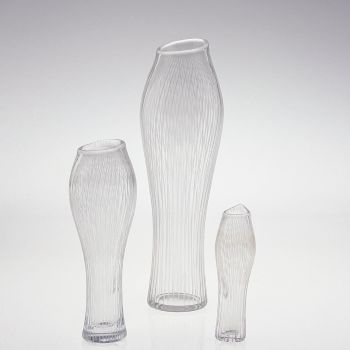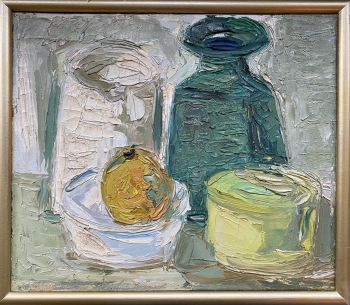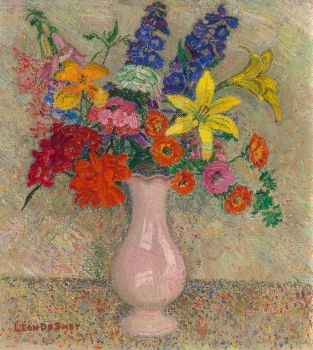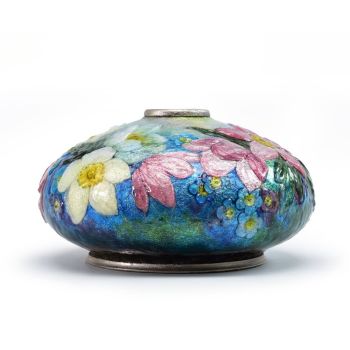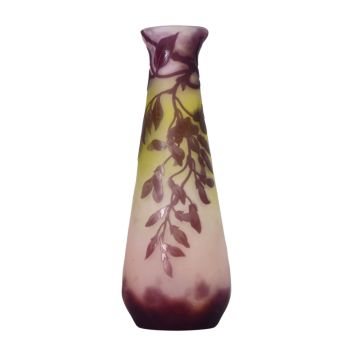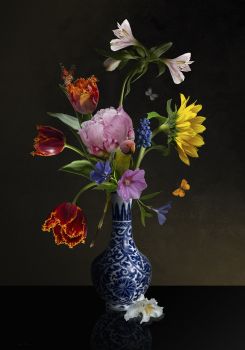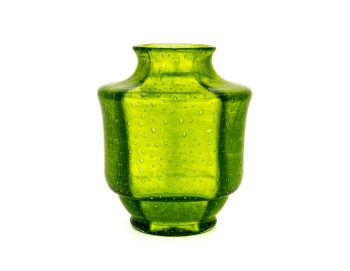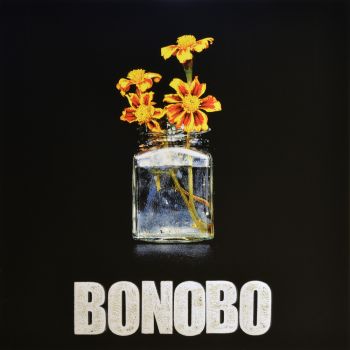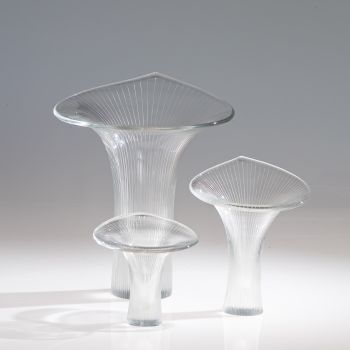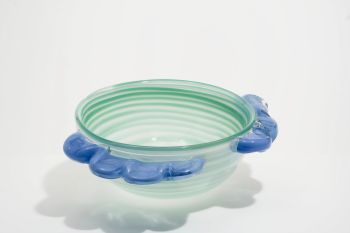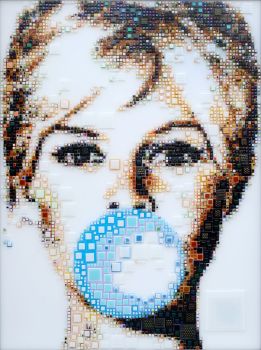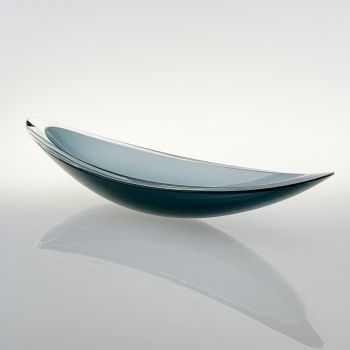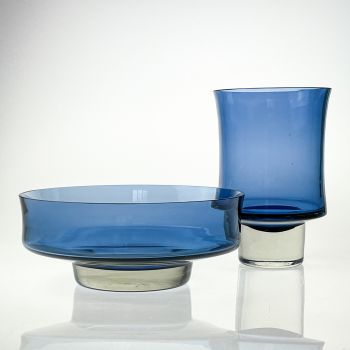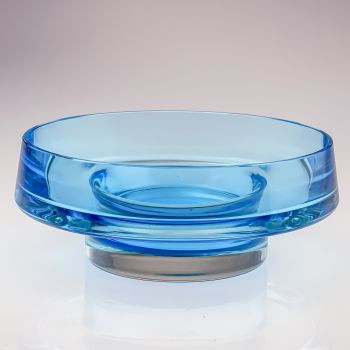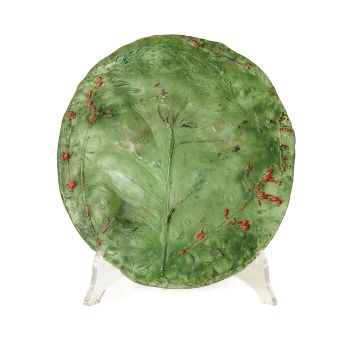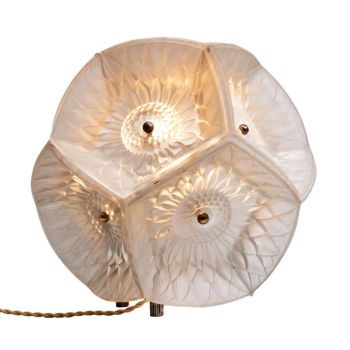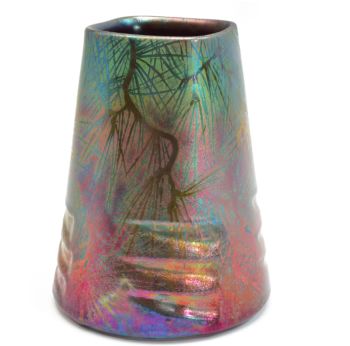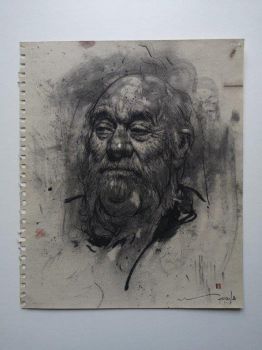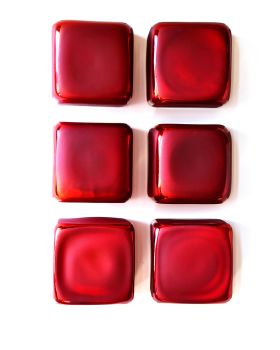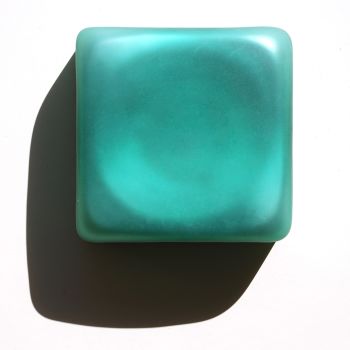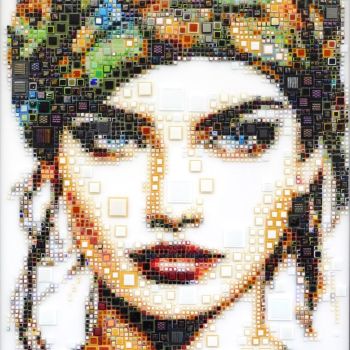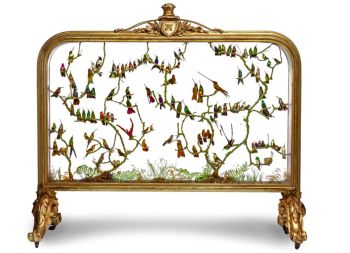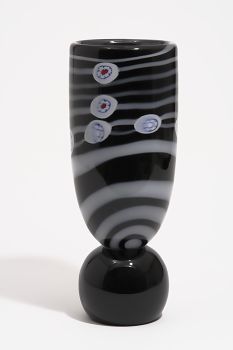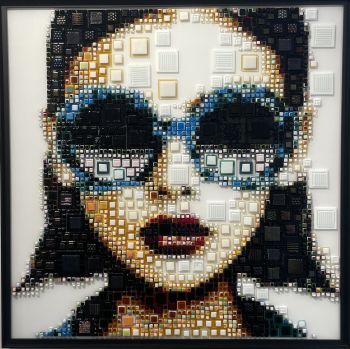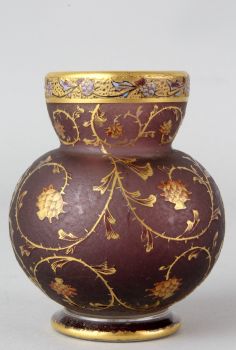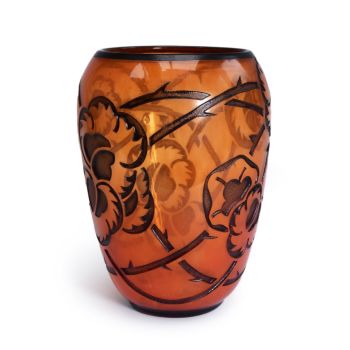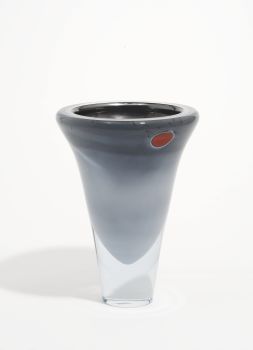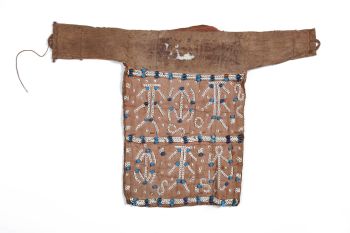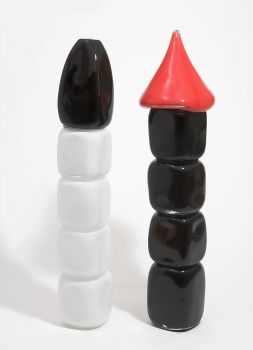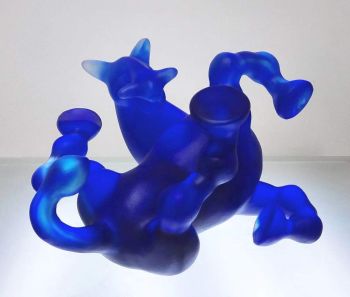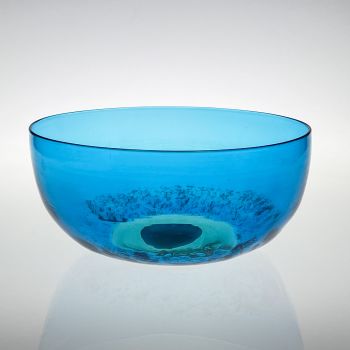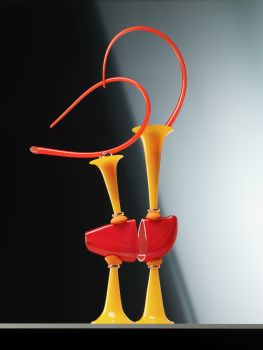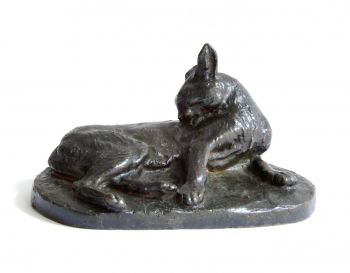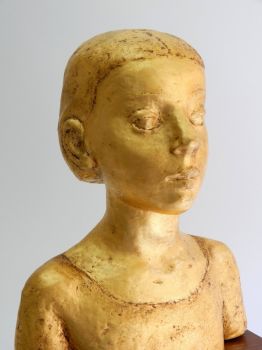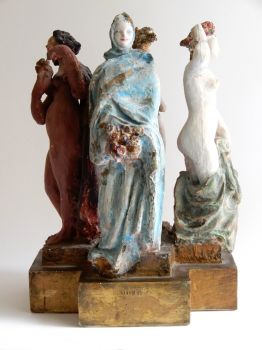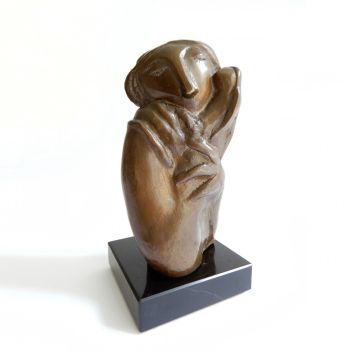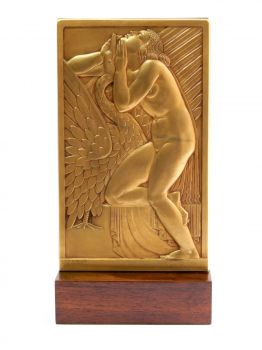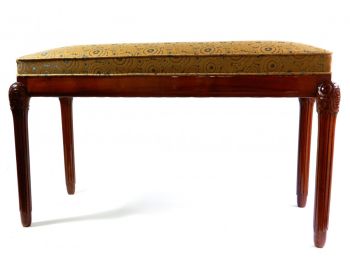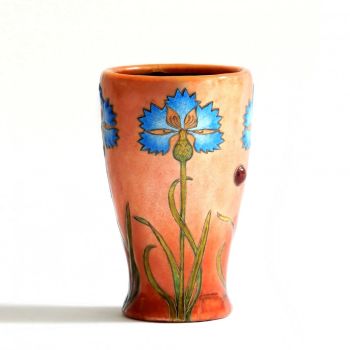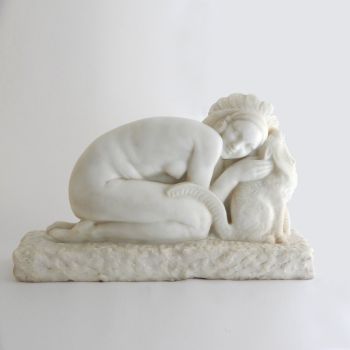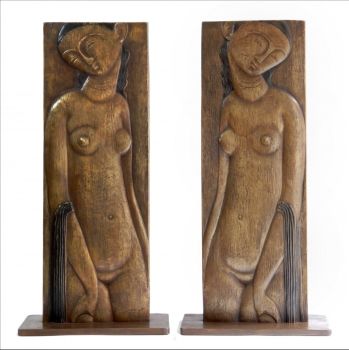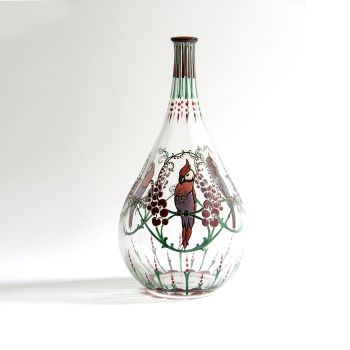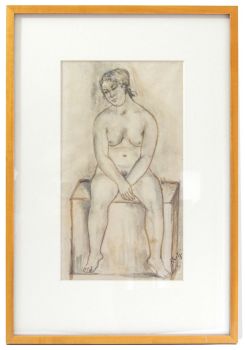Vase 'Gui' 1920 - 1932
René Lalique
Glass
17 cm
ConditionMint
Currently unavailable via Gallerease
Dille Art
- About the artworkThis vase with the mistletoe (named 'Gui' in French) is a beautiful design by René Lalique from 1920.
The refined way in which the mistletoe is interwoven with the vase is beautiful. So elegant. This vase is made of clear glass with a satin finish, the berries and leaves are slightly polished as an extra accent. The vase is patinated with a blue powder patina for extra contrast.
The vase is blown in the mould (soufflé moulé) and then carefully worked by hand. The vase has model number 948, the number of the mould is 1435.
This vase was only produced for a short time as Lalique decided in the early 1930's to remove the vase , along with other vases, from the collection as a cutback due to the depression. These vases were labour-intensive to produce, still blown in the mould, instead of pressed, and the finishing was still done by hand. The vase was then only available from stock.
These vases are nowadays very popular with collectors, partly because of their refined finish, but also because they are rarer due to the shorter production period.
-----
René Lalique is seen as one of the largest glass artists in the world. His work is admired worldwide in museums, there are also several museums that are only dedicated to René Lalique, such as Lalique Museum Doesburg in the Netherlands and of course Musée Lalique in Wingen-sur-Moder, France, but also in Hakone (Japan) and many others.
The vase is signed with a moulded signature 'R.Lalique' on the bottom.
Literature:
- Félix Marcilhac, ‘R. Lalique, Catalogue raisonné de l’oeuvre de verre’, Les Éditions de l’Amateur, Paris 2011, p. 427.
- Christopher Vane Percy; 'The glass of Lalique, a collectors guide', Studio Vista, Cassell & Collier Macmillan Publishers Ltd, London, 1977. P. 31.
- Philippe Olland; 'Dictionnaire des Maîtres Verriers de l'Art Nouveau á l'Art Déco, Marques & signatures'. Éditions Faton 2016. P. 192-199.
- Victor Arwas, 'Glass, Art Nouveau to Art Deco'. Academy Editions London 1987. - About the artist
René Jules Lalique (6 April 1860, Ay, Marne - 1 May 1945, Paris) was born on the 6th of April in 1860, in Ay, Marne.
He was a French glass designer known for his creations of glass art, perfume bottles, vases, jewellery, chandeliers, clocks and automobile hood ornaments.
In 1872, when he was twelve, he entered the Collège Turgot where he started drawing and sketching. He attended evening classes at the Ecole des arts décoratifs. He worked there from 1874-1876 and subsequently spent two years at the Crystal Palace School of Art Sydenham, London. At the Sydenham Art College, his skills for graphic design were improved, and his naturalistic approach to art was further developed.
When he returned from England, he worked as a freelance artist, designing pieces of jewellery for French jewelers Cartier, Boucheron and others.
In 1885, he opened his own business and designed and made his own jewellery and other glass pieces. By 1890, Lalique was recognized as one of France's foremost Art Nouveau jewellery designers; creating innovative pieces for Samuel Bing's new Paris shop, Maison de l'Art Nouveau. He went on to be one of the most famous in his field, his name synonymous with creativity, beauty and quality.
Lalique was best known for his creations in glass art. In the 1920s, he became noted for his work in the Art Deco style. He was responsible for the walls of lighted glass and elegant coloured glass columns which filled the dining room and "grand salon" of the SS Normandie and the interior fittings, cross, screens, reredos and font of St. Matthew's Church at Millbrook in Jersey (Lalique's "Glass Church").His earlier experiences in Ay were his defining influence in his later work. As a result, many of his jewellery pieces and vases showcase plants, flowers and flowing lines.
Both unique and commercial works of René Lalique are in the collections of a large number of public museums around the world including the Museu Calouste Gulbenkian in Lisbon, the Musée Lalique and the Musée des Arts Décoratifs in France, the Schmuckmuseum Pforzheim in Germany, the Victoria and Albert Museum in London, the Metropolitan Museum and the Corning Museum in New York State, and the Rijksmuseum in Amsterdam.
René Lalique passed away on the first of May in 1945, in Paris.
Are you interested in buying this artwork?
Artwork details
Related artworks
René Lalique
An early vase 'Bluets' designed by Rene Lalique (1860-1945)1910 - 1920
Price on requestLennart Booij Fine Art and Rare Items
René Lalique
A very rare deep green ‘Fougeres’ Vase designed by R. Lalique1912
€ 8.950Lennart Booij Fine Art and Rare Items
 Curated by
Curated bySilla Scheepens
1 - 4 / 12- 1 - 4 / 24
Unknown artist
Series of 6 Chinese cups and saucers (Yongzheng period)1722 - 1735
Price on requestKuipers Kunst & Antiek
Unknown artist
A rare filigrana a retortoli goblet1550 - 1600
Price on requestPeter Korf de Gidts - Antiquairs
1 - 4 / 24Jan Voerman sr
Still Life with flowers in a Chinese figurine1850 - 1900
Price on requestKunsthandel Pygmalion
1 - 4 / 24- 1 - 4 / 24
- 1 - 4 / 12

